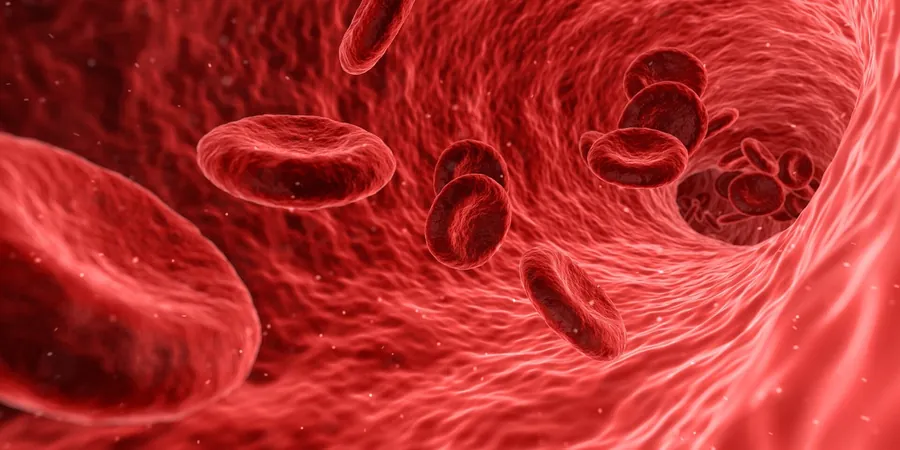
Breakthrough Drug Offers Affordable Hope for Newborns with Life-threatening Bleeding Disorder
2024-12-06
Author: Jia
Breakthrough Drug Offers Affordable Hope for Newborns with Life-threatening Bleeding Disorder
In a groundbreaking development for pediatric healthcare, researchers have revealed that emicizumab (Hemlibra), a drug approved by the FDA in 2018, could significantly improve the lives of infants battling severe hemophilia A, a genetic disorder that hinders blood clotting and poses a serious risk of dangerous bleeding episodes, including life-threatening brain bleeds.
Severe hemophilia A not only jeopardizes the immediate health of affected infants but also raises concerns about long-term neurological damage. Recent findings from the HAVEN 7 trial confirmed that emicizumab effectively prevents and mitigates these dangerous bleeding events. Despite its effectiveness, many parents and healthcare providers have expressed anxiety over the high costs associated with the drug.
However, a new study led by the Goshua Lab at Yale School of Medicine has found that implementing emicizumab prophylaxis is not only a safe strategy but also a cost-effective one when compared to delaying treatment until after a major bleeding incident occurs. The research revealed that the lifetime treatment cost of emicizumab is approximately $9.8 million per patient, a slight increase from the nearly $9.7 million associated with a solely reactive treatment approach.
Dr. George Goshua, the lead author of the study, emphasized the importance of proactive measures, stating, "We know from data that specific children with severe hemophilia A are at high risk for head bleeds without prevention, some of which can lead to significant neurological disabilities. Initiating emicizumab prophylaxis in infants aged 0-2 years proves to be cost-effective in the U.S. despite the drug's high price tag."
These findings highlight a crucial shift in the treatment paradigm for hemophilia A and have the potential to change the lives of many newborns who face this debilitating disorder. Importantly, the value of both standard and low-dose emicizumab administration was underscored, showing an impressive enhancement in quality-adjusted life years (QALYs).
As anticipation builds, Samira Glaeser-Khan, a first-year medical student at the Goshua Lab, is set to present these pivotal findings at the upcoming American Society of Hematology Annual Meeting (ASH 2024) in San Diego, California, on December 7. This research could pave the way for revolutionary changes in policy and treatment accessibility for one of the most vulnerable patient populations.
Stay tuned for more updates as the medical community reacts to these promising developments in hemophilia treatment!



 Brasil (PT)
Brasil (PT)
 Canada (EN)
Canada (EN)
 Chile (ES)
Chile (ES)
 España (ES)
España (ES)
 France (FR)
France (FR)
 Hong Kong (EN)
Hong Kong (EN)
 Italia (IT)
Italia (IT)
 日本 (JA)
日本 (JA)
 Magyarország (HU)
Magyarország (HU)
 Norge (NO)
Norge (NO)
 Polska (PL)
Polska (PL)
 Schweiz (DE)
Schweiz (DE)
 Singapore (EN)
Singapore (EN)
 Sverige (SV)
Sverige (SV)
 Suomi (FI)
Suomi (FI)
 Türkiye (TR)
Türkiye (TR)